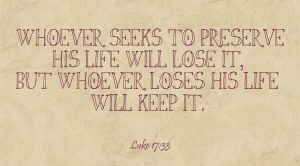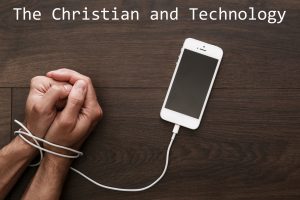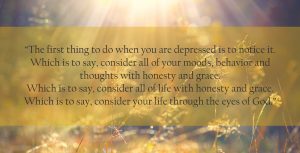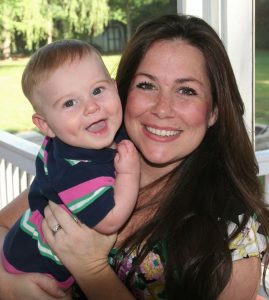resolved 2020: gratefully make choices
I’ve lost ten pounds since September. I’m happy all over. My knees are grateful, my waistline relieved, my heart encouraged. I feel empowered (and more myself). “How did you do it?” you might ask. Modestly I answer, “It was the result of my choices.”
Of course, the gaining of that ten pounds was also the result of my choices. Choices always produce results. The real question is who’s in charge of making your choices? The answer, of course, is you. We are the ones in charge, but tend to live as if we aren’t. What’s up with that? The ability to choose is perhaps the greatest human gift, but we often live as though we either don’t have a choice or the strength to choose. Incredibly, we forfeit our greatest gift.
Let’s look at my recent weight loss as a way to understand this gift of choice.
For three months, I made choices that eventually added up to ten fewer pounds. Sounds so simple, doesn’t it? Well, part of it is and part of it isn’t. The procedure is simple, the psychology is not. The actual choices are simple procedure, but the choice-making is profound mystery. Choices are simply what we do; choice-making is profoundly who we are.
First, let’s talk about the choices. For three months I counted calories, ate smaller portions, planned my meals, and increased time on the exercise bike. No surprises there. The actual procedure of weight loss is basic, something you can look up anywhere. And, I might add, all of those choices felt like choices.
But if you go back twelve months and examined how I gained those original ten pounds, my reported experience would be different. I made choices then, too. I disregarded calories, ate larger portions, and didn’t burn them off. Also no surprise (if you want to gain weight, that’s how you do it). But these were choices, too, they just didn’t feel like choices. Somehow, I buried my awareness of making choices such that I was disengaged from my “chooser,” the part of me in charge of making choices.

The individual choices to lose or gain weight are simple actions, but the process of making those choices is a profound mystery. When we make a choice, we activate the core part of ourselves. Think about that; the core part of you (or will) is your chooser, not your intellect or emotions. When it is time to make a choice (which is always), then all the other parts of your swirl around your chooser, influencing the decision, and bringing data. If your chooser is healthy, then you possess self-leadership. If your chooser is broken, then your whole system lives on some level of disorder.
Picture it like this. The chooser part of you is the king and all other parts are courtiers. Your cognition is like your royal advisor, as are your emotions. Your historical experiences are like emissaries from other countries. Your character faults and gifts are like dukes and duchesses (influential, but they have their own agenda). Your wounds, values, genetics, and physical needs are all in the room. So is your sin. They all have a viewpoint, they all have data, and they are all “informing” the king.
You get the idea.
Now picture me during the last three months. It seemed that at all gatherings, a cookie platter is set out. At the end of my lunch order I am asked, “Would you like a add cookie for 99 cents?” On staff retreat, there’s always an unguarded box sitting in the kitchen. And then there was Christmas.
I had to make a choice, which put me into a war room. I felt like that king listening to all his minsters argue over the next decision. The Ambassador from Hungry points out, “I haven’t eaten in hours!” The Cognition Advisor insists, with pointed finger, “This is not part of our plan!” The Secretary of Indulgence protests, “It’s inhumane to deny natural appetites!” The Minister of Condemnation shouts, “I knew it would come to this!” A member of the resistance holds up a placard, “Free the Cookies!” The room is a jumble of rationalizations and strong emotions.
And there my chooser part sits on the throne, in the middle of the fray. The horrible moment comes and I must choose.
No matter what I choose, I will take the whole rabble along with me. The chooser might be free to make any choice about that cookie, but it is also responsible for the consequences. And here lies the profound human mystery: we are free to choose our way and we are responsible for the consequences. Freedom and responsibility: the uniqueness of being human. We are the monarch of ourselves.
But we might ask, “How can we bear it?” Having both freedom and responsibility are almost too much. We often want to abdicate and let someone else to decide, either someone outside of us, like friends or critics, or something internal, like fear or perfectionism. But in the end, it is always the king who decides. Even no decision is a decision. We are trapped in the freedom. We are saddled with the responsibility.
To be healthy, we must embrace our sovereignty. To accept this grace God has given us, we must embrace ourselves as choosers. In so doing, we become how God made us. And then, it turns out, the freedom isn’t a trap, it is what we are made for. Responsibility isn’t a saddle; it is the steed. We become ourselves in freedom and responsibility.
Namely:
- I become a responsible me.
I listen more wisely to the voices within and without. I gain self-confidence internally and trust of people externally. They may disagree with my choices. They may be right. But they will be able to experience me as someone honest enough to take responsibility for myself (and my decisions). If responsible for my poor decisions, I put myself into a position to repent, receive forgiveness, and learn. If responsible for my good decisions, I put myself into a position to enjoy the fruit. Without ‘response-ability’ you can’t gratefully respond to success or humbly respond to failure.
- I become a free me.
I can freely choose. I can choose to not eat a cookie, but rather the kingship over my body. Or, conversely, in becoming me, I can choose to eat that cookie and enjoy it, rather than berating myself. Either way, I become a more “true me,” which is more important than any individual cookie decision. A “false me” will avoid consciously deciding and therefore will never learn from either good or poor choices. A “truer me” will embrace choice-making and learn from both good or poor choices.
Human freedom and responsibility are God’s gift. Therefore in 2020, I resolve to consciously choose.
Footnote:
* There are limits to this. For example, we aren’t free to choose our parents or stage of life. But within those limits is the gift of profound freedom and responsibility.
 Roger Edwards joined The Barnabas Center in 1991. He works with both with individuals and couples, helping people confess their need and embrace their available choices to lead healthier lives. Roger also teaches and leads discussion groups and retreats applying the Gospel to everyday life. He is a licensed professional counselor (LPC), holds a master’s degree in biblical counseling from Grace Theological Seminary in Indiana and earned a bachelor’s degree in engineering from the University of North Carolina at Charlotte. He is married to Jean and they have seven children and nine grandchildren.
Roger Edwards joined The Barnabas Center in 1991. He works with both with individuals and couples, helping people confess their need and embrace their available choices to lead healthier lives. Roger also teaches and leads discussion groups and retreats applying the Gospel to everyday life. He is a licensed professional counselor (LPC), holds a master’s degree in biblical counseling from Grace Theological Seminary in Indiana and earned a bachelor’s degree in engineering from the University of North Carolina at Charlotte. He is married to Jean and they have seven children and nine grandchildren.





